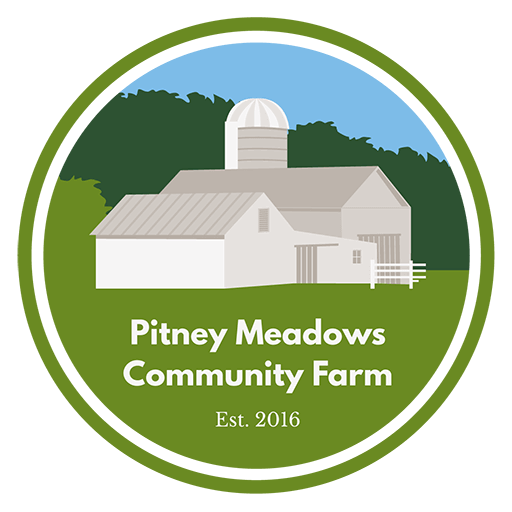40 Acres and a Mule: A Reflection on Land, History, and Privilege
Kendrick Lamar’s Super Bowl LVIII performance was more than a moment of entertainment—it was a lesson in history, a stark reminder of promises made and broken. While he didn’t perform Alright, he invoked one of its core messages, while preluding his final songs in his set with the line, “40 acres and a mule, this is bigger than the music.” He renewed attention to a truth that too often goes unspoken: the United States government’s failure to deliver on its promise of land to formerly enslaved Black Americans.
In 1865, near the end of the Civil War, Union General William Tecumseh Sherman issued Special Field Order No. 15, a policy that sought to redistribute 400,000 acres of land along the southeastern coast to formerly enslaved people—granting 40 acres per family. It was meant to be a first step toward economic independence after centuries of forced labor. Many Black families believed this was a new beginning, a chance to build something of their own. But that promise was never fulfilled. President Andrew Johnson overturned the order, returning the land to former Confederate owners and ensuring that Black Americans remained landless in a country that continued to profit from their labor.
At the same time, the Homestead Act of 1862 provided 160 acres of federally owned land to white settlers willing to move westward. Over 270 million acres—10% of all U.S. land—was granted through this program, creating generational wealth for white families while Black Americans were excluded. It is one of the most glaring examples of how land policy in America was shaped by racism, reinforcing inequality for generations.
A Reminder of Privilege & Responsibility
Today, Pitney Meadows sits on 160 acres—the same amount of land many white families received through the Homestead Act. As we reflect on Black History Month, we acknowledge the weight of this history and the privilege it represents. Land is power, land is security, land is opportunity. Too often in American history, land has been used as a tool of oppression, with access denied to those who built this country through their labor. And, of course, it was first stewarded for millennia by Indigenous peoples before the arrival and hostile takeover by white settlers.
So, what does it mean for us—a community farm, a steward of land, a place dedicated to food justice—to exist on 160 acres? It means we must never take it for granted. It means we must acknowledge the harm of past land policies and seek to use our space for equity, inclusion, and justice.
At Pitney Meadows, we work toward a food system that is community-centered, equitable, and regenerative. But true justice means asking deeper questions:
- How can land and the food grown from it be shared in ways that heal historic wounds?
- How can we support Black farmers and food sovereignty efforts?
- How do we ensure that access to land is not just a privilege, but a right?
Kendrick Lamar’s Super Bowl performance was a reminder that history is alive, that injustice is not just in the past, and that the fight for equity is far from over. And we know that acknowledging privilege is just the first step—the real work is in action, accountability, and change. These are just some of the questions that will drive our upcoming strategic planning process as an organization and serve as an invitation for more voices to join that work.
Read, Listen, Watch, Engage
This Black History Month, we invite our community to explore the resilience, leadership, and contributions of Black farmers and growers, past and present, through these powerful resources:
Read: The Color of Food: Stories of Race, Resilience, and Farming by Natasha Bowens.
Farming is often portrayed as a white, agrarian pursuit, but the reality is much richer and more diverse. In The Color of Food, author, photographer, and biracial farmer Natasha Bowens shares powerful stories of Black, Indigenous, Latinx, and Asian farmers, illuminating their resilience, struggles, and deep-rooted connection to the land. This book challenges the status quo, reminding us that true food sovereignty is about culture, community, and honoring those who have come before us.
Listen: Black Land Matters – A Rural Humanities webinar
The loss of Black-owned land is one of the most pressing but under-discussed injustices in American history. In this important conversation, Natalie Baszile (Queen Sugar) and farmer-activist Karen Washington (Rise & Root Farm, BUGS) discuss the historical and ongoing challenges of land ownership, food security, and Black farmers’ fight for justice. Moderated by Anu Rangarajan of Cornell’s Small Farms Program, this webinar sheds light on the vital relationship between land access and racial equity.
Watch: Uprooting Racism, Seeding Sovereignty – Keynote Address by Leah Penniman
What does it mean to decolonize the food system? In this powerful keynote, Soul Fire Farm’s Leah Penniman weaves together history, structural realities, and grassroots movement strategies to address racial injustice in agriculture. Ending with a spoken word poetry by Naima Penniman and stunning visuals from the farm, this 45-minute video offers a call to action for building a food system rooted in dignity, justice, and abundance for all.
Engage: NEFOC Land Trust Reparations Map
The food system was built on stolen land and stolen labor. The Northeast Farmers of Color Land Trust is reclaiming sovereignty by advocating for the redistribution of land and resources to BIPOC farmers. Through the Reparations Map, you can directly support Black and Indigenous-led farm projects that are growing food, healing land, and restoring cultural foodways. This is an opportunity to move beyond learning into action, enabling people to support BIPOC-led farm projects reclaiming land, food, and healing.
Food justice is racial justice. This month and every month, let’s uplift the voices of Black farmers, land stewards, and food sovereignty leaders. Let’s learn, unlearn, and take meaningful steps toward a more just food system.
